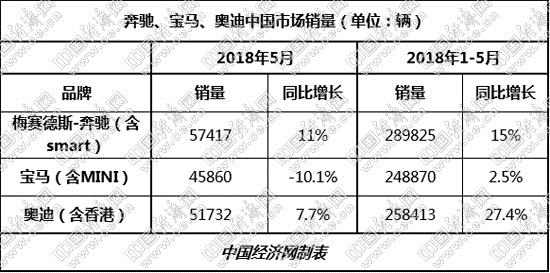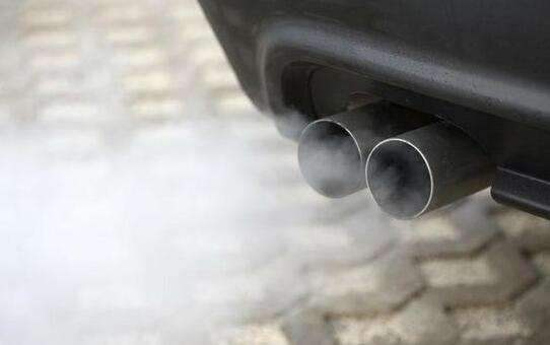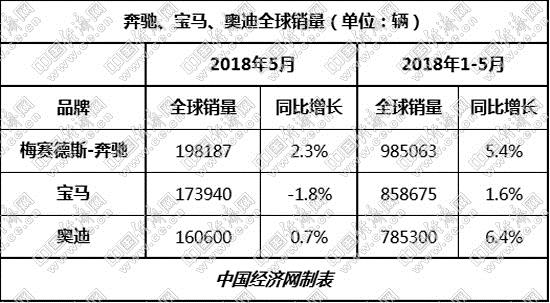The recent fluctuations in the luxury car market are mainly affected by the adjustment of tax policies. The sales performance in May and June does not fully reflect the market competitiveness of various companies. As for the future competitive situation of the high-end automobile market, it should also be viewed in the longer term. On the one hand, the costs of recalls, on the other hand, or the huge fines that will be faced, will significantly increase the operating costs of Audi and Mercedes-Benz. Under the background of the current industry revolution, all parties are increasing their investment in the future, and whether Mercedes-Benz or Audi, which is deeply stuck in the “diesel doorâ€, will be affected in R&D investment, disrupting the future of both. Market layout? Following Audi and Mercedes-Benz, BMW's May sales were officially released yesterday (June 12). According to statistics, BMW sold 45,860 vehicles in China in May, down 10.1% year-on-year and 8.4% month-on-month. BMW's May sales dropped significantly in comparison to the 50,000-plus Audi and Benz. In the first five months of this year, BMW's total sales volume in China was 248,870 units, which was a year-on-year increase of 2.5%; a difference of 40,955 units from Mercedes-Benz and 9,543 units lower than that of Audi was ranked third in ABB. In this regard, BMW said that “in the past May, China’s auto market experienced major fluctuations. The downward adjustment of value-added tax at the beginning of the month and the reduction of import tariffs at the end of the year have caused many consumers to experience changes in their attitudes, which will have a short-term impact on terminal sales. ." Tax Adjustment Leads to Market Volatility ABB Three Companies Are Affected Indeed, as BMW said, the VAT reductions that have been issued in May, as well as the reduction of tariffs on imported vehicles and parts and components, will have a significant impact on the entire automobile market, especially on the premium car market. Although premium brands such as Audi, Mercedes-Benz and BMW all responded to the policy in the first instance, they announced that they would adjust the suggested retail price of the model for sale. However, due to the official implementation of the import tariff reduction on July 1, there were more than one since the release of the import tariff. The time of the month has triggered a great wait-and-see mood at the consumer level. As far as ABB is concerned, all three brands have been affected to varying degrees. Audi and Mercedes-Benz’s sales in May all fell in a month-on-month comparison, while BMW’s exposure to ABB’s largest proportion of imported models was currently the largest. At the same time, such influence will continue in the coming June. "Because the tariffs on imported cars and parts have been formally lowered since July 1, the effect of tax reduction and cost reduction cannot be reflected in June. The manufacturers' sales and marketing efforts will not be strong. It is estimated that the market will smoothly transition in June," the national passenger car Cui Dongshu, general secretary of the Market Information Association, said earlier. The recent fluctuations in the luxury car market are mainly affected by the adjustment of tax policies. The sales performance in May and June does not fully reflect the market competitiveness of various companies. As for the future competitive situation of the high-end automobile market, it should also be viewed in the longer term. Audi, Mercedes-Benz deep in the "diesel door" or disrupt the future market layout? While adjusting taxes in the Chinese market, the global premium car market is also surging. The continuous fermentation of the “discharge door†incident is causing Daimler, the parent company of Audi and Benz, to become even more deeply involved. On June 11th, Daimler, after holding two meetings with Germany’s highest regulatory body, still failed to alleviate its doubts about its diesel emission violations and officially announced the recall of 774,000 diesel vehicles in Europe. On the previous June 7, Audi was also asked by the German authorities to recall 60,000 Audi A6 and A7 models from the world due to the same problem. In addition, Audi CEO Stead has been listed as a suspect under investigation. On the one hand, the costs of recalls, on the other hand, or the huge fines that will be faced, will significantly increase the operating costs of Audi and Mercedes-Benz. Under the background of the current industry revolution, all parties are increasing their investment in the future, and whether Mercedes-Benz or Audi, which is deeply stuck in the “diesel doorâ€, will be affected in R&D investment, disrupting the future of both. Market layout? Judging from the current sales volume, in the first five months, the Mercedes-Benz brand sold a total of 985,063 vehicles worldwide, which still ranks high on the global premium car market, and continues to maintain a greater advantage for BMW and Audi. The cumulative global sales of BMW in May were 858,675, and Audi sold 785,300.
Casting Steel Wear Parts
Casting Steel Wear Parts is a kind of wear parts in mining industry.It is widely used in mining industry, metallurgical industry, construction industry, chemical industry and silicate industry for crushing hard and medium hard ore and rock, such as iron ore, limestone, copper ore, sandstone etc.Casting Steel Wear Parts are the replacement of Jaw Crusher ,Cone Crusher ,Gyratory Crusher ,Hammer Crusher and so on.
TyCrusher Parts is the specialized manufacturers from China.our produce High manganese casting liners mainly include Mantle, Bowl Liner, Feed Cone , jaw plate, check plate, Arm Liner , Steel Ball ,and etc, TyCrusher Parts` casting wear parts can suit lots of world famous crushing equipment brand suach as : Nordberg, Telsmith, Terex , Symons, Kleeman, Extec and etc.
Low Alloy Steel Wear Parts,Casting Steel Wear Parts,Crusher Wear Parts,Commercial Alloy Steel Wear Parts Guangzhou Tianyu Machinery Equipment Co., Ltd. , https://www.tycrusherpart.com

